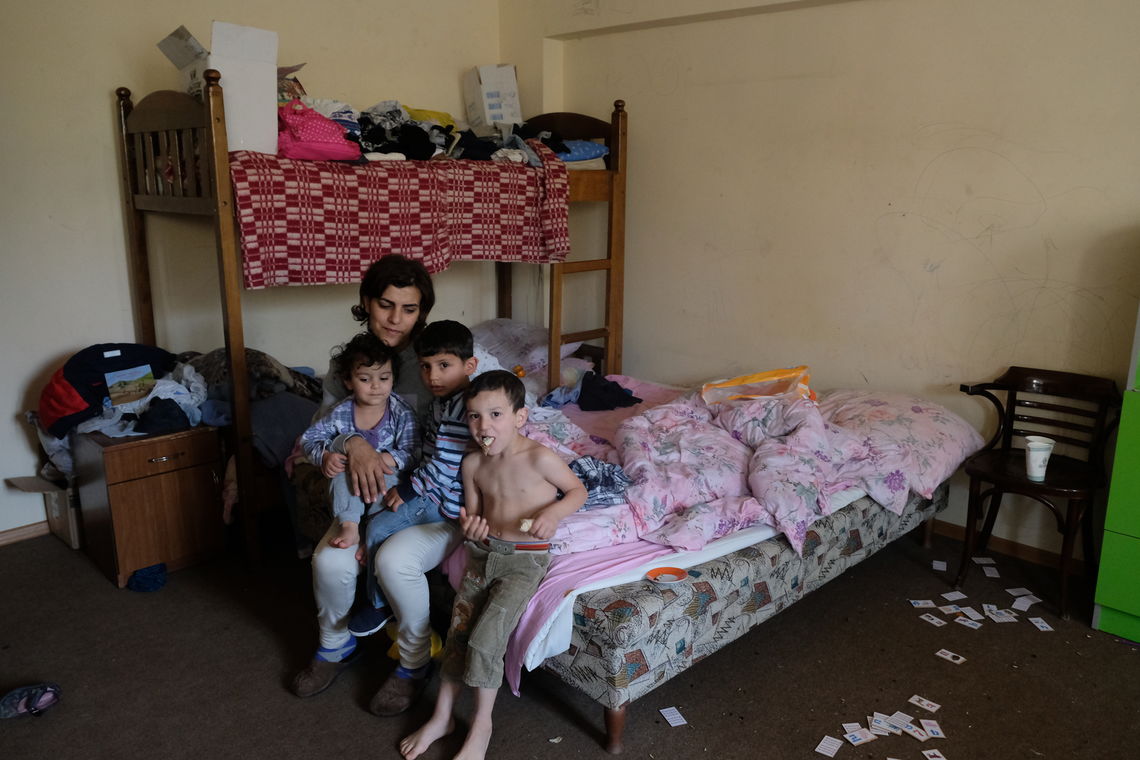
�
It had been almost two decades since Gohar Karapetyan last made the trip from Artsakh to Yerevan when she decided, on the morning of October 1, to repeat the journey.
That first time, when she was in the 10th grade, was an exciting pilgrimage from her small hometown of Martakert as part of a United Prayer service in the Armenian capital. The trip last month, however, was an escape, rather than a pilgrimage, as heavy Azerbaijani shelling drove her and her eight children from their newly built home in the center of Stepanakert.
The 33-year-old grew up in the middle of the first Karabakh war where she remembers spending days underground sheltering from bombs. It was an experience she didn’t want her own children to go through and, so, when war broke out at the end of September she initially made the difficult decision to send three of them to Goris to stay with friends.
A couple of days later, she realized she also had to flee, leaving her husband, who volunteered to fight even though he was offered exemption because of the couple’s large family.
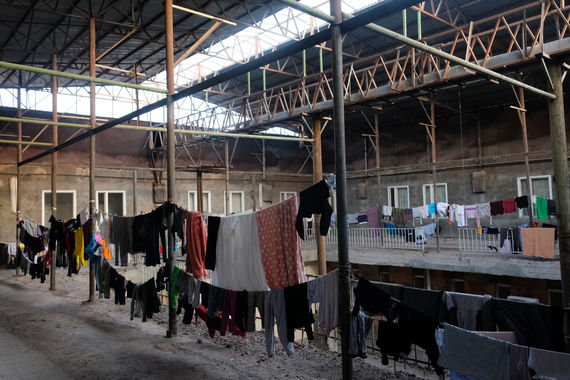
�
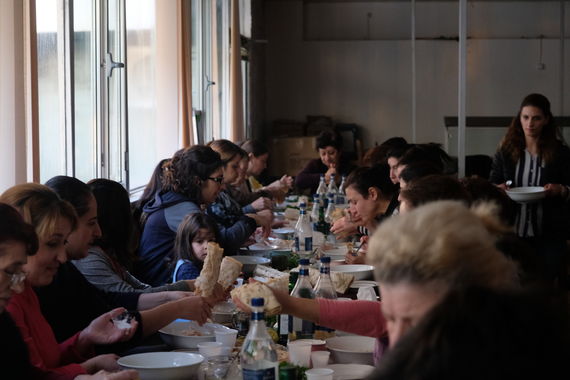
�
The family are now staying with 131 other refugees in a makeshift shelter center overlooking Yerevan, just meters from the Tsitsernakaberd Genocide Memorial. Organized by private individuals at the request of Armenia’s Ministry of Labor and Social Affairs, the former Soviet sports complex has become home for these 140 Artsakh refugees since the war broke out. The site, which used to house travelling sports teams in Yerevan, is being overseen by Vahe Keushguerian, who has left the day-to-day running of his wine company to his daughter so that he can help organize shelter for more than 1200 people across Armenia as part of a project he’s named Project Hope.
On this chilly November morning he’s hosting a traditional khash breakfast for the refugees, 80 of whom are children. The majority of the others are women, with just a handful of elderly men in deep discussion at a separate table.
Karapetyan holds court to a handful of other women. Her children are still in bed and she’s enjoying the short break before taking two bowls of khash upstairs as they start to wake up.
“It's difficult here, I don't have a TV to give the kids a rest, to give myself a rest, but most importantly we are safe now,” she says, sipping at the shot glass of vodka which is a compulsory accompaniment to any genuine Armenian khash experience.
“I'm responsible for all the kids, but the neighbours are helping a little, it's difficult,” she says.
With widespread damage to Stepanakert and tens of thousands of refugees fleeing to Armenia proper, she believes she made the right choice in leaving when she did.
“I needed to be with the children so I came to Yerevan and brought them all with me, I had to reunite them,” she says, reliving the decision from the L-shaped bedroom the family are sharing.
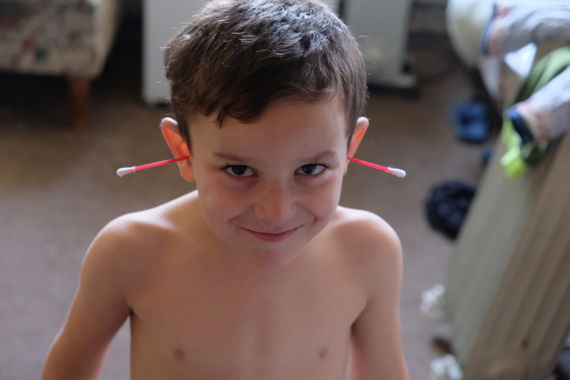
�
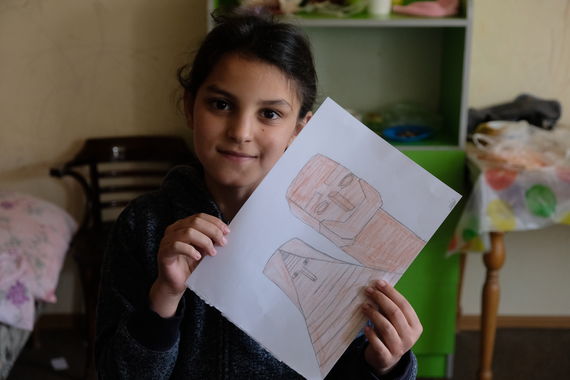
�
“My husband couldn’t not stay, he wanted to defend his family, his mother, his aunts,” Karapetyan says, as she juggles two-year-old Larissa. At her feet three-year-old Robert jumps from bunk bed to bunk bed, beating his chest and pulling faces at the camera.
Under a green sheet on another bed is Karapetyan’s eldest child, 11-year-old Albert, who tries to ignore his siblings and hide from the morning light.
“My husband was injured so he went to Goris, now he’s helping move soldiers between Goris and Artsakh, he’s not on the front line anymore.”
Karapetyan is the only adult member of her family in Yerevan. Her mother is in Sevan while her brothers remained in Artsakh and are serving on the front line.
The loss of her support network has been the biggest difficulty. With eight children she was often helped by neighbours and friends in her tight-knit Stepanakert community but many of them have been injured or killed.
“They are gone,” she says, waving her hand through the air between us. “There are people dying still, it's difficult to return home. There will be no relatives, no friends, no community.”
Her home has also been destroyed. “We had a new house, we were going to renovate it but the war has begun. Now, half of the house has been blown up.
Despite the growing fears of Azerbaijani advances into Artsakh territory, Karapetyan is typically Artsakhi in her response to her thoughts of returning to Stepanakert.
“This month is going to be peaceful, I know it. We'll live here but just to be safe, we need peace, we're waiting for peace,” she says. “I'll never leave Stepanakert, Martakert is my home but Stepanakert is my family's home.”
As she speaks, 10-year-old Angelina sprints in holding a picture she’s drawn of the We Are Our Mountains monument (Tatik, Papik monument). “Our home,” her mother says.
“I know that by New Year we'll be back there,” she adds. “We'll celebrate Christmas in our home, with people I love, with friends. Next year everything will be better.”
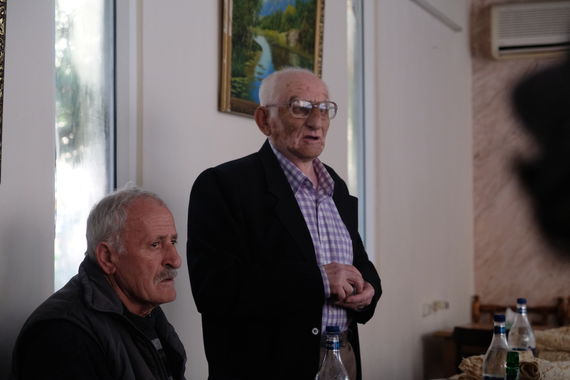
�
Back inside the dining room, the eldest man present begins a traditional toast. Vodka glass high in the air, Edvard Hakobyan praises Armenians for “always fighting for their land and for peace.”
The 82-year-old arrived in Yerevan with his daughter Gayane and her three children soon after the war started.
Gayane, 46, remembers the first war well. “It’s very different this time”, she says. “We stayed in Artsakh that time. Now the weapons are more destructive. The children were frightened, we had to get away.”
She says that during the first war, the windows of their home were blown out. “My father [Edvard] said not to worry, once the fighting stops we’ll fix it. It happened again this time, we’ll fix them again.”
With so many children refugees, one of the biggest challenges has been ensuring they have access to education amid the violence and coronavirus. Artsakh’s Human Rights Ombudsman Artak Beglaryan has repeatedly highlighted that more than 20,000 children have lost their right to education since the conflict began.
Keushguerian diverted employees from his business to set up an education program and recruited volunteers from Armenia and the diaspora to provide lessons for the hundreds of children under his supervision.
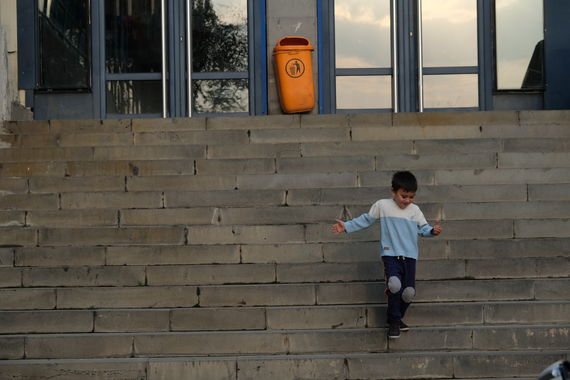
�
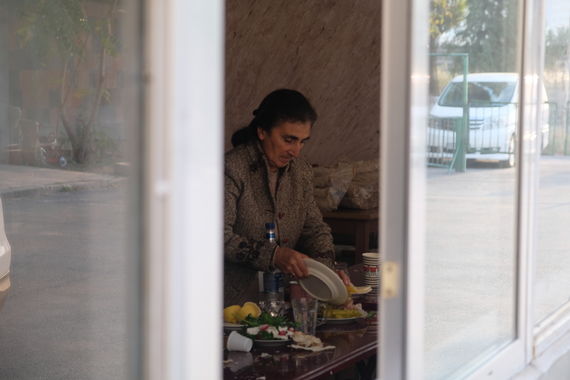
�
They came up with a 10-week curriculum which started this week and covers subjects including English, Maths, Science and Art.
His son, Luca, a rock climbing enthusiast, also jumped into action. He managed to source an old climbing wall which has been set up in the huge sports hall at the complex. It has become a huge hit with the kids, he says, many of whom have never had the opportunity to try the sport.
“The kids are busy here, they’re playing a lot,” says Karaptayan. “Robert, the three-year-old, has started to speak here.”
“This son wants to be a doctor,” she nods towards a grinning Nver who peers through the rails of the top bunk. “This one a policeman,” she points at five-year-old Artur who has a cotton bud sticking out of each ear. “They want to serve their country.”
“They are future defenders of the motherland, I'm proud of that. They're Armenian, they'll protect Armenia.”



